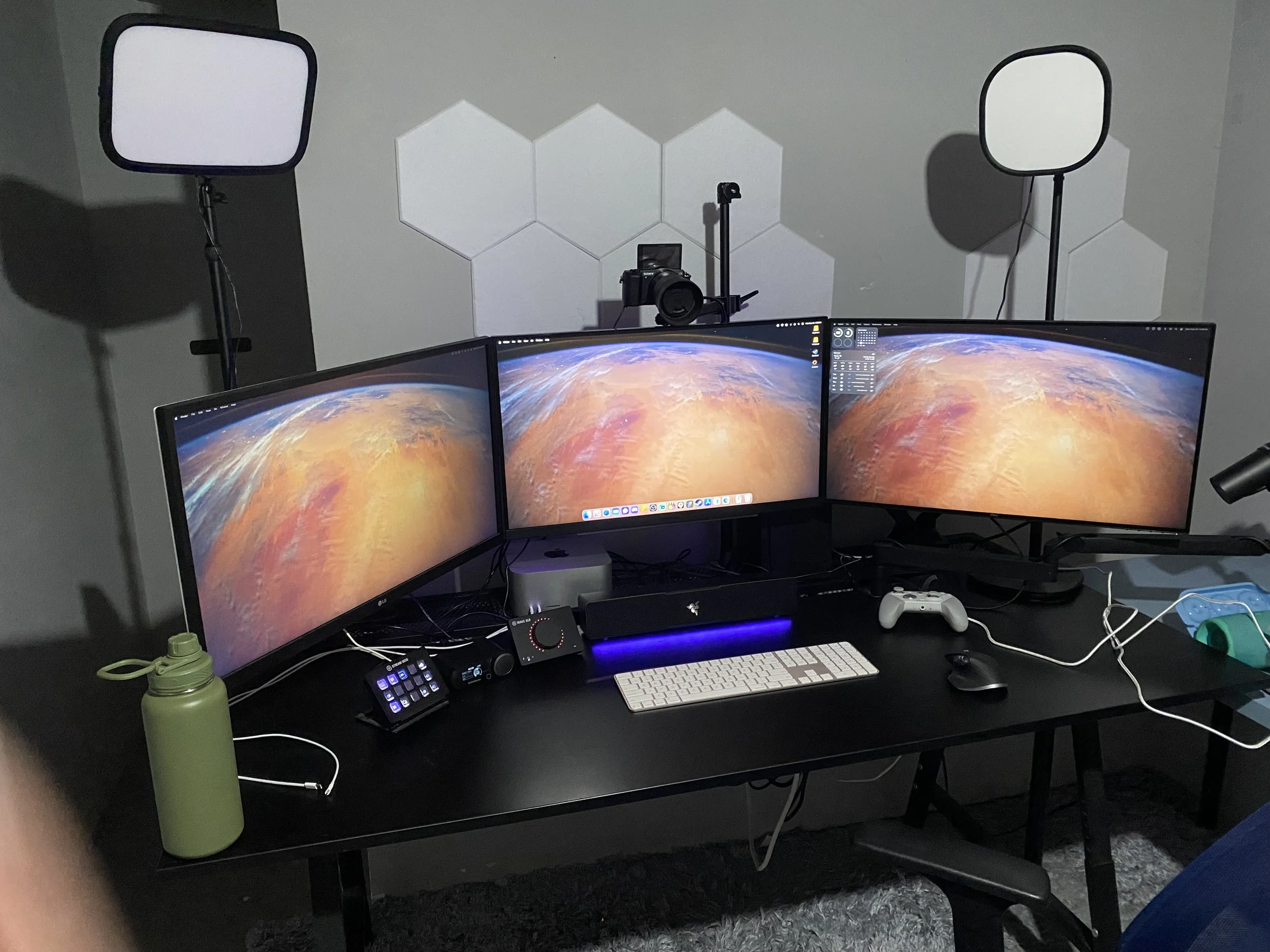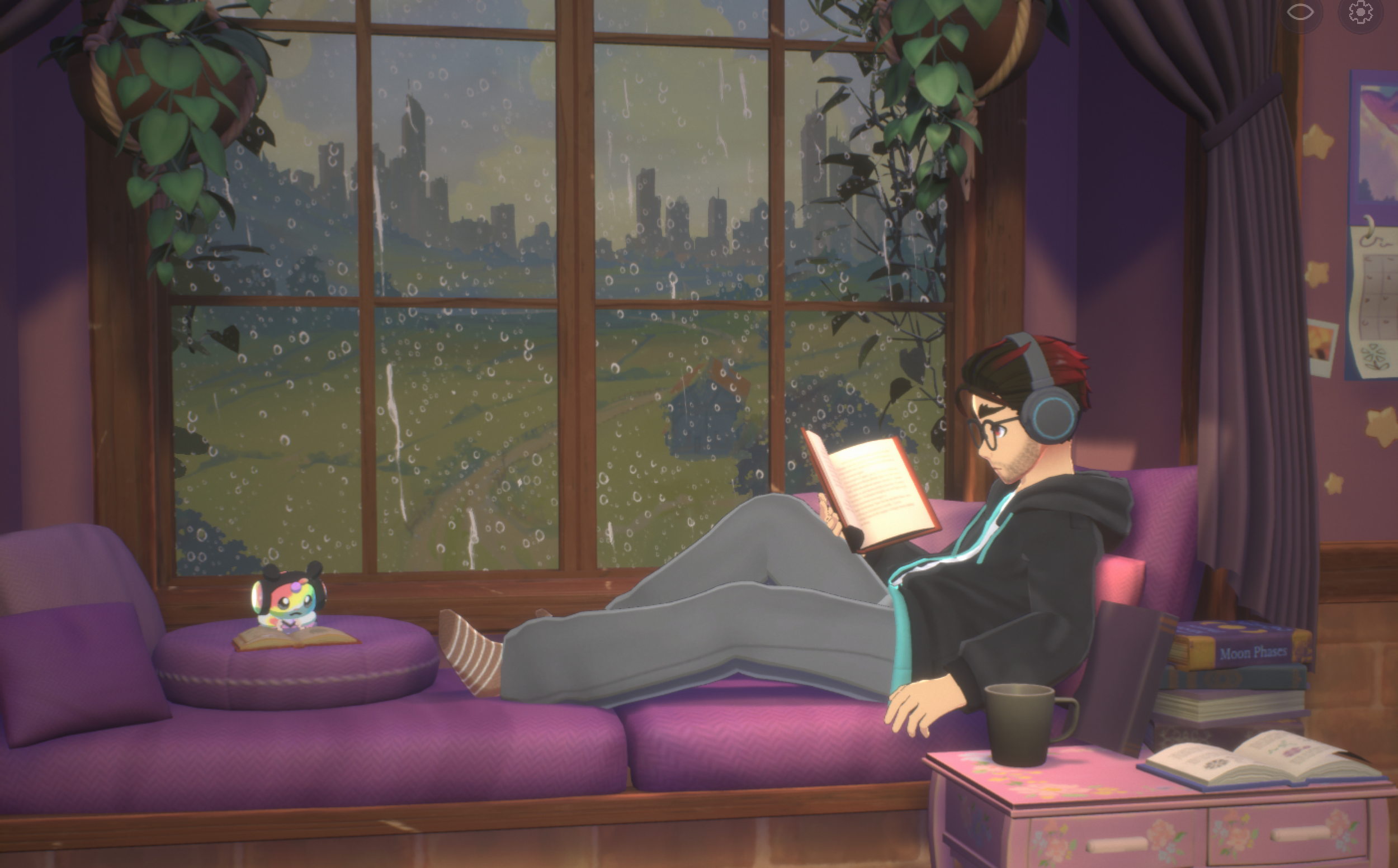The Power of Routine: How Structure Enhances Autistic Creative Output
Across the spectrum of neurodivergence we have chaos-loving ADHD people and structure-needing autistic people. When trying to harness creative energy, both sides of the neurodivergent coin must approach it differently. Speaking from the experience of an autistic person, I do my best work when I set a specific chunk of time aside for creative work and eliminate as many distractions as possible—after all, distractions break the hyper-focus that a good creative session needs in order to scratch that itch.
What is Structure?
For the purposes of this article, structure is any repeatable action that helps someone maintain a schedule. Working a full-time job is a good example. You might wake up at 6:30 AM, take a 15-minute shower, brush teeth for two minutes, spend five minutes making and eating avocado toast, seven minutes getting dressed, and 25 minutes to drive to work. This leaves you with 36 minutes of overhead in case your toast burns or traffic is slower than usual, and probably still leaves you 20 minutes to sit in the parking lot running through all the scripts you're going to use to interact with your coworkers.
When you apply the concept of structure to content creation, you can minimize distractions or disruptions and maximize your creative output because you don't need to worry about anything else for that dedicated block of time. It does require quite a bit of planning and a good understanding of your own barriers.
Hyper-focus as a Reward—or a Promise
I find it easiest to get into a hyper-focus period of creative work in the mornings. I drop the kids off at school and then have around six hours before I pick them up. But in this same time, I need to do things like clean the kitchen, eat lunch, do the shopping, run errands, etc. On a day with no errands and no shopping, I'll usually start the day with as close to two hours of content creation as I can. Knowing that I can spend that two hours, and then clean the kitchen and make lunch, and still have some time after lunch for other cleaning or tasks, or video or copy editing, I can work uninterrupted and be productive. This is what I call hyper-focus as a promise—I am taking a calculated risk that I won't get sucked into a 6-hour session, and rewarding myself for control.
On days where I need to do shopping or errands, I'll approach it differently. I start my day with whatever tasks I need to complete and use the hyper-focus as a reward. As someone who struggles with an eating disorder, rewarding myself with something other than food is a huge achievement. I do shopping as early as possible to avoid crowds, I wear my noisy grass hoodie and noise-cancelling headphones to minimize the sensory overload. When I get home, I give myself around 30 minutes to decompress from whatever I encountered while I was out, and I make sure that 30 minutes is not spent at the computer. From there, I transition into a lighter type of creative work—maybe I tweak the website, do analytics work, research topics and ideas and start putting together source lists, and write opening paragraphs to some of my ideas. If inspiration strikes, I roll with it, but if not, I direct the less effective creative time to the important sub-tasks of running a website.
Building a Routine
Building a routine starts with scheduling as many things as possible in advance. Whether the schedule is daily, weekly, or monthly, knowing what needs to be done, and on which days, helps you build it out. I know that most grocery stores change out their sales on Thursday, so I usually set Friday as my grocery shopping day, with Sunday as my oops-I-forgot-cheese day.
Setting a Stream Schedule
I schedule my Twitch streams in a staggered format that allows days for flex in between—at the time of writing, those streams are Monday, Wednesday, Friday, and Saturday, 6 PM to 8 PM PT. This balances the needs of having a family with my favourite activity.
I have written before about the challenges in coming up with a schedule you can adhere to—after all, consistency is very important to growth on Twitch. If you check my first article, the times I set for my streams have changed since even then. I'm constantly refining my schedule and adjusting for changes, especially around my kids' needs. The most recent change was that Monday and Wednesday used to be 5 PM to 7 PM streams, but I was finding it challenging to be ready by 5 PM, because dinner preparation may not be finished yet, or we might be outside riding bikes, or on a snack run. Moving the time to 6 PM increases the chance I'll be on time and prepared. 8 PM feels a little late on a school night, but I'm still finished before the kids to go bed, so it's been fine so far.
My stream schedule is the most likely to get disrupted by factors both in and out of my control. This is why with each article I post, it seems like my schedule has shifted in some way. Olivia Guy-Evans says it well here, "A supportive routine makes life easier; a restrictive routine causes distress if it’s disrupted or prevents you from doing important things" (Guy-Evans, 1). There are few things more restrictive than a hard start time for a livestream when you don't know what will be happening four Mondays from now. Adhering to a schedule is important, but not more important than your mental health.
Meal Prep
One of the advantages of my flavour of autism is that I can eat the same food every day for months and never get bored. Breakfast sandwiches, butter chicken, my signature 8-bean chilli, it's all easy to prepare in bulk, freezes for weeks, and significantly reduces the time strain on preparing lunch every day. I'm going to put together some meal prep this weekend and hope to take pictures of the process and post my recipes as I do it.
Avoid Time Killers
There are a few things that will suck time from your day and you can never get it back. Reddit, YouTube, and TikTok are the risks to my own success.
I enjoy using Reddit to get news and information about the things I care about. Currently, I'm subscribed to the Twitch, Xbox, and Elgato communities. The key to not falling down Reddit rabbit holes is I stay away from r/all during the day. Reading about the things happening in the world is a great way to lose hours of your day—and I'm not even American. In a similar vein, I stay off Facebook, Twitter/X, Bluesky, and other social media sites, because it's too easy to fall victim to someone's ragebait post. It seems like more and more people are building a platform on hate and negativity, and it can be hard to avoid that.
I watch YouTube periodically throughout the day, but now that I'm doing my own content creation, every minute that I watch a video is a minute I'm not working on my own video. That said, videos need viewers, so I try to watch things that are educational, informational, or related to video games I play—you still need some time to relax! Most of my relax time, however, comes from TikTok. My feed is a combination of autistic creators, food creators, and gaming news. TikTok is extremely easy to fall into for too long, though, so I try and limit myself to times like waiting for water to boil.
It's difficult to schedule things like these, so instead I fill them into the gaps in the schedule where nothing is planned.
Helpful Tools
One of the greatest productivity tools I've found is a game on Steam called Spirit City: Lofi Sessions. You create a character and sit them in a cozy room while Lofi tracks (stream-safe tracks, I might add). The game has features like a to-do list, journal, timers, and a productivity tracker. You can add ambient sound like a crackling fireplace, thunderstorm, spinning records, or birds chirping. You can also dress up your room and your avatar, though to be honest, I haven't gotten too deep into that. There are also DLCs for the game that I don't have, but I guess one of them is cooking and one is about trains? I used Spirit City when I was doing content creation on PC, and now that I've moved to a Mac, I'm happy to learn that the product is compatible with Mac as well.
Limiting Distractions During Hyper-Focus
It's easy enough to put your phone on silent, close Discord, put on noise-cancelling headphones, and dive into hours of work. But do you have the kind of life where you won't risk missing out on something important? What if your spouse calls? What if your kids get sick at school? What if Fedex knocks on the door? What if the cat knocks plates off the counter?
I use Focus Mode on iOS to limit which calls and messages can get through, only allowing my family for calls and messages via Signal. This means that if I get a message, it's probably important. It's also my "safe" list of people, and talking to them won't completely derail my day.
If I do get distracted, especially if I need to get up and move somewhere else, I find it helps to ease back into the focus state with those light research or secondary tasks I mentioned above. I open Pages and start writing social media posts for my next stream, or select specific quotes from the articles I found earlier. Once I find a quote, I can figure out how I want to write it into my article to support or counter one of my points, and before I know it, I'm fully focused again.
And with That, Go, Be Creative
Building your routine is about maximizing your creative time in structured creative windows. Even if you can only be really productive for six hours in a week, hopefully by building some healthy routines around those six hours, they'll be better spent and more effective at getting you closer to your goals.
References:
Guy-Evans, Olivia. "Why Autistic People Prefer Routine And Structure." SimplyPsychology. August 5, 2025. Accessed September 27, 2025.


